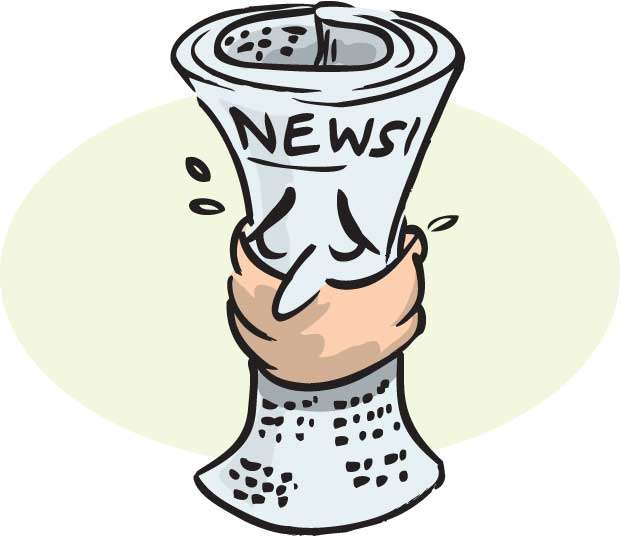Media freedom and social responsibility - EDITORIAL

 2018-09-26
2018-09-26Twenty years have passed since the Colombo Declaration on Media Freedom and Social responsibility was signed by The Editor’s Guild of Sri Lanka (TEGOSL) in April 1998 together with the Newspaper Society of Sri Lanka and the Free Media Movement.
An international conference has been organized from Sept. 27 (tomorrow) to 30 to mark the 20th anniversary of the Colombo Declaration. It is organized by the Sri Lanka Press Institute (SLPI) in partnership with its constituent partners, UNESCO and the Royal Norwegian Embassy.
The conference will also coincide with the UN designated International Day for the Universal Access to Information (IDUAI). The parley will be formally opened by Prime Minister Ranil Wickremesinghe tomorrow, and on Friday, the keynote address on IDUAI will be delivered by Speaker Karu Jayasuriya, followed by an address by Mahinda Gammanpila, Chairman, RTI Commission. Representatives from Australia, Bangladesh, Canada, China, Germany, India, Norway, Pakistan and the United Kingdom will participate. As one can expect one of the items in the agenda is the revisiting of the Colombo Declaration.
Colombo Declaration was a result of a tedious effort by the media community in Sri Lanka after a difficult period with disappearances of journalists, long drawn censorship under the name of national security and law suits against the journalists who performed their duty towards the community. It was signed especially in the backdrop of a campaign launched by TEGOSL and other fraternal media organizations to have the laws of criminal defamation repealed after five TEGOSL members had been indicted under the Penal Code for criminal defamation.
Yet, it did not insist only on the rights of the journalistic community and the media in general, rather it emphasized the responsibility of the industry as well, as its theme “Media Freedom and Social Responsibility” had signified.
Hence, the industry took steps to overcome some of the problems within it by creating Sri Lanka Press Institute (SLPI) and two arms under it, the Sri Lanka College of Journalism (SLCJ) and the Press Complaints Commission of Sri Lanka (PCCSL) in order to train its members and enhance the ethical standards of them, while continuing to press the governments to take steps to ensure media freedom.
During the initial years of the SLPI, the International Federation of Journalists after a survey said that only 4 percent of journalists in Sri Lanka had been aware of ethics, leave alone having training on the matter. However, the PCCSL has since conducted dozens of workshops on journalistic ethics for the staff members of the mainstream newspapers and for the provincial journalists in all districts in the country. And the SLCJ provided training to hundreds of journalists, in the form of a diploma course and mid-career courses.
One cannot be satisfied with the achievements by the industry for the past twenty years, though it had some remarkable outcomes. The awareness it created among the concerned sections of the society had resulted in the abolition of provisions in the Penal Code and the Press Council Act in 2002, the repeal of Section 118 of the Penal Code which had penalized attempts by contumacious or insulting words or signs, to bring the President into contempt and repeal of the 1978 amendment to the Parliamentary Powers and Privileges Act of 1953 which had given Parliament to deal with serious breaches of privilege. Also with the inclusion of right to information in the 19th Amendment to the Constitution which was passed in April 2015 the right to information has become a constitutional right of the people though with a wide range of restrictions.
Yet the majority of laws, the Colombo Declaration wanted to abolish in the interests of the media in particular and the general public in general are still in force and the media community also had to travel through a period of abductions, killing, torture and arson attacks after the signing of the Declaration and its revision at its 10th anniversary in 2008.
And the industry has to find solutions to the problems such as fake news and hate speech which have taken a dangerous turn after the proliferation of the social media, the politicization of media and the media becoming a tool in the hands of politicians. We hope the three day conference starting from tomorrow would be a milestone in finding solutions to these issues.
